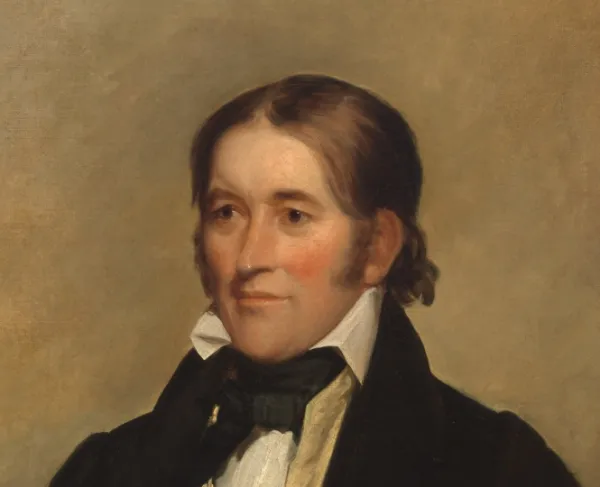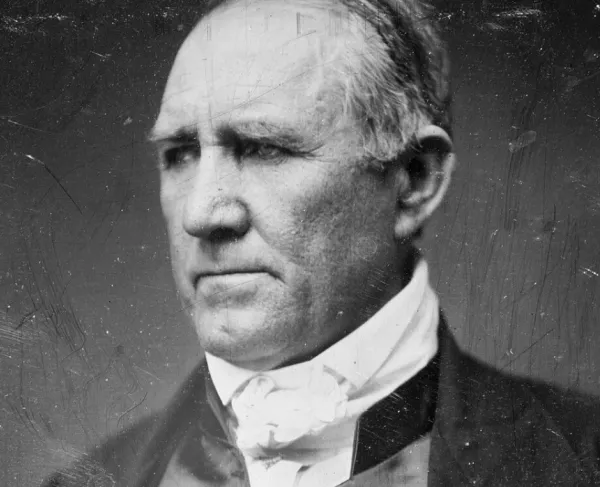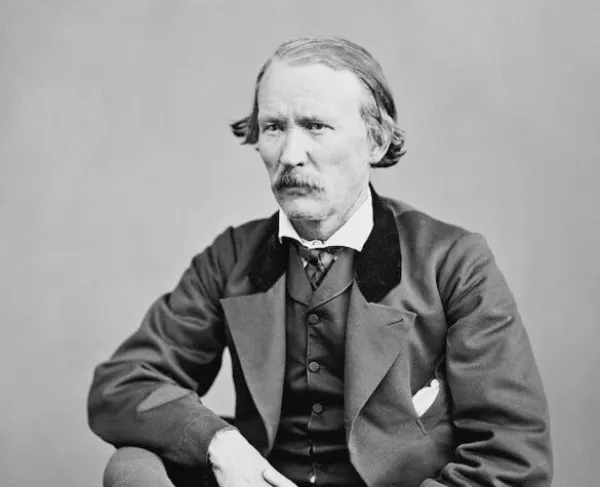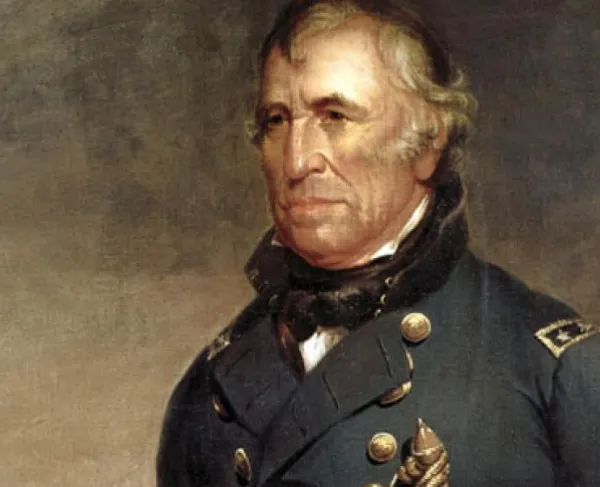Davy Crockett

David “Davy” Crockett was born on August 17, 1786 near modern day Limestone, Tennessee. His father, a patriot veteran of the Battle of King’s Mountain, had often forced the family to move in Davy’s youth in search of economic opportunities. To pay off his father’s debts, Davy was indentured and apprenticed to various people, even spending two years away from home working as a cattle driver. Because of his constant work and the travel it entailed, Crocket never received a standard education, still being illiterate at the age of 15. Through this resilient upbringing, he also became a great hunter and gunman.
In 1813, motivated by the Fort Mims Massacre that started the Creek War, Crockett enlisted in the Tennessee Militia. For the next few months, Crockett fought until the decisive American victory at Horseshoe Bend in early 1814. Soon after, under the direction of Major General Andrew Jackson, Crockett joined the U.S. Army to fight in the War of 1812. His regiment lagging the main forces, Crockett saw little to no combat against the British in either Pensacola or subsequent New Orleans. Instead, he fought against the various Native British allies, mostly in modern day Alabama and Florida. During his service, he used his hunting skills to help feed and supply his regiment.
After the end of the war, Crockett was elected to be the first major of the 57 Regiment of the Tennessee Militia, and by 1821, to the Tennessee General Assembly. In 1826, he won a seat in the United States House of Representatives for the first time and would keep it until 1831. During his time in both legislatures, Crockett advocated for poor farmers and frontiersmen, gaining a reputation as being an advocate for the common man. He regularly introduced bills against land speculation that hurt ordinary people, and he opposed institutions that he viewed as elitist, like the US Military Academy. He staunchly opposed Jackson’s Indian Removal Act, calling it “a wicked, unjust measure” in his autobiography. The only representative from Tennessee to stand against the act, Crockett received gratitude from Cherokee chief John Ross and anger from his constituents. He lost his seat as a result, regained it briefly from 1833-35, and then losing it once again.
His opposition to President Jackson and his policies led Crockett to venture out to Texas, arriving in January 1836, right as the Texan Revolution erupted. Pledging themselves as volunteers for the new provisional government of Texas, Crockett and his men went down to San Antonio de Bexar to garrison the Alamo Mission. On February 23, General Antonio Lopez de Santa Anna initiated a siege on the Alamo. During the nearly two-week siege, Crockett defended the fort in skirmishes under incessant bombardment as the Mexicans brought in more reinforcements. On daybreak of March 6, the Mexican forces breached the Alamo, killing all its defenders, including Davy Crockett. It is not known whether Crockett was killed in combat or executed after surrendering. The bodies of the Alamo defenders were burned; the ashes were later collected and buried somewhere in the area.
Crockett was married twice. He married his first wife, Polly Finley, in 1806 and they had three children together, the oldest of which would become a US representative in 1837 in the same district his father lost two years prior. In 1815, after Polly tragically passed away, Crockett remarried Elizabeth Patton, with whom he had three more children.
During his life, Davy Crockett became an American folklore hero, becoming the subject of almanacs and stage productions. His image as a funny, authentic frontiersman and hunter, wearing his iconic coonskin cap was further engrained in American mythology after his death. He became the subject of various movies, plays and TV shows over the course of the 20th century.





